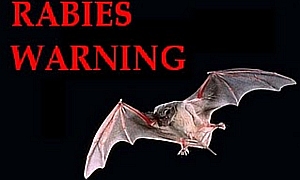 The Marshall County Health Department received confirmation on Tuesday December 3, a bat had bitten a Marshall County resident and tested positive for rabies. The resident was bitten on Thursday November 26 and immediately sought medical attention.
The Marshall County Health Department received confirmation on Tuesday December 3, a bat had bitten a Marshall County resident and tested positive for rabies. The resident was bitten on Thursday November 26 and immediately sought medical attention.
Treatment for rabies is a postexposure prophylaxis (PEP) consisting of human rabies immune globulin and rabies vaccine. It should be given on the day of the rabies exposure and then additional doses of the vaccine given again on day 3, 7 and 14 postexposure.
Rabies is a fatal but preventable viral disease. It is found throughout the United State, mostly in wild warm-blooded animals like bats, raccoons, skunks and foxes. In Indiana, the most common vector for Rabies is the bat. “It is important to seek medical attention when you have an interaction that may have led to you being exposed to rabies. Marshall County had the tragedy of losing a child to rabies in 2006 and it is not something we want repeated,” warns Dr. Holm, the Health Officer for the Marshall County Health Department. “Rabies is rare in Indiana, however, it is not eradicated. So we must be aware when there is an exposure, what the proper treatment would be”, says Christine Stinson, the administrator of the Marshall County Health Department.
To reduce the risk of exposure, you should check your house for bats. Often times, bats are found in attics and it is important to work with professionals to remove them from your dwelling if you
are unable to safely do it yourself. Very few bats in Indiana test positive for rabies with only a total of 13 testing positive in 2018. The Marshall County Health Department will only assist in testing for rabies upon suspicion of someone being exposed. If you find a bat in your home and believe you or someone living there may have recently been exposed, it is advised to safely capture it and bring it to the health department for testing. If you cannot safely capture the bat yourself, work with a professional pest control company to capture the bat for testing and to remove all bats from your living space.
It is always better to be safe than sorry when it comes to you or your family’s health. So, if there is ever a time you believe you or someone you know has been bitten by a bat or any rabid animal, contact your physician and local health department to follow the appropriate steps to ensure you and your loved ones are properly cared for.














